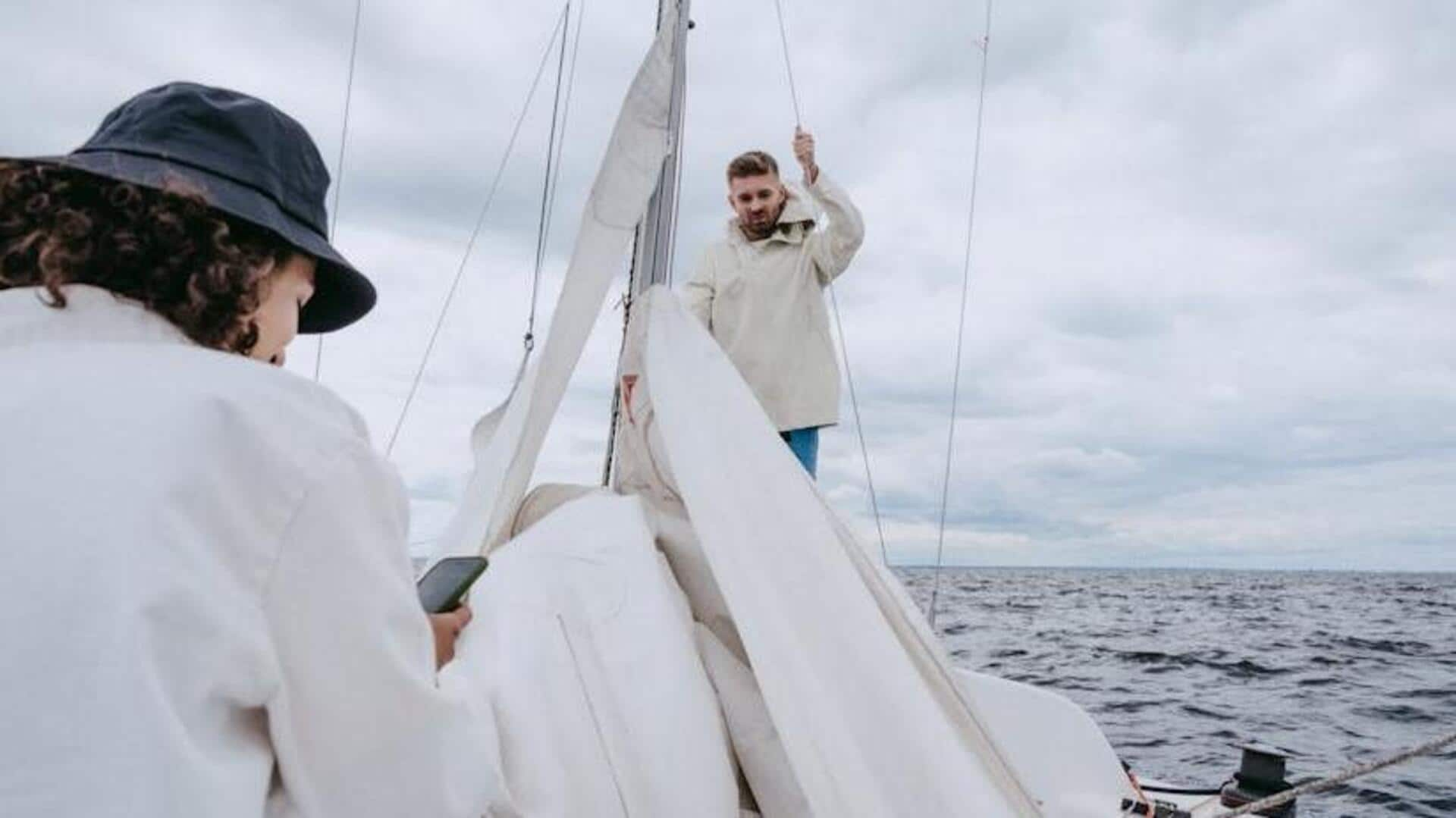
Tips for those setting sail to travel around the world
What's the story
Setting sail to circumnavigate the world by sailboat is a unique adventure like no other, blending the excitement of discovery with the formidable test of traversing the world's immense oceans. This article provides valuable tips and advice for anyone contemplating or preparing for such a journey, with a focus on thorough preparation, strategic route planning, prioritizing safety, and embracing sustainable practices.
Preparation
Preparing for the journey
Proper planning and preparation are key to a successful circumnavigation. This includes not only making sure your sailboat is seaworthy and outfitted with essential navigation instruments but also learning sailing, navigation, and emergency response skills. Budgeting is also crucial, as expenses can vary widely depending on boat upkeep, provisions, and port fees. Expect to spend a good six months to two years preparing before you finally set sail.
Route planning
Choosing your route
Choosing your path is a thrilling aspect of planning your round-the-world trip. The classic route adheres to the trade winds, providing more favorable and predictable weather conditions and wind directions. Critical decisions involve timing to bypass cyclone seasons in high-risk areas and choosing between tackling infamous passages like Cape Horn or selecting canal shortcuts like the Panama Canal. Every decision offers a unique set of challenges and adventures.
Safety measures
Safety at sea
You can't be too careful when you are in the middle of the ocean A well-serviced boat with life rafts, EPIRBs (Emergency Position Indicating Radio Beacons), satellite phones, and comprehensive medical kits is a must. So is performing regular drills for man-overboard scenarios, fire emergencies, and water ingress. Plus, keeping a close eye on weather forecasts and having backup plans ready are crucial aspects of maritime safety.
Sustainability practices
Living sustainably at sea
Sustainability ought to be a key mantra while you sail around the world. By adopting practices like reducing plastic use by choosing reusable containers and conserving water with efficient usage systems onboard, you can minimize your environmental impact while at sea. The same can be achieved by harnessing the power of the sun and wind through solar panels or wind generators instead of solely relying on fuel-based generators.
Navigation skills
Navigational challenges
You can't rely on Google maps here. While GPS systems are convenient, knowing how to navigate using the stars is a crucial skill, particularly if electronic devices malfunction due to technical difficulties or severe weather affecting satellite signals. Blending modern technology with traditional navigation techniques provides a safety net when traversing the vast oceans.